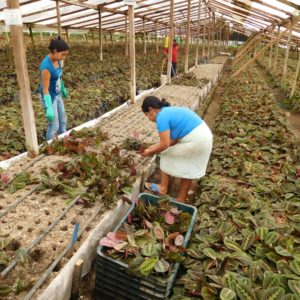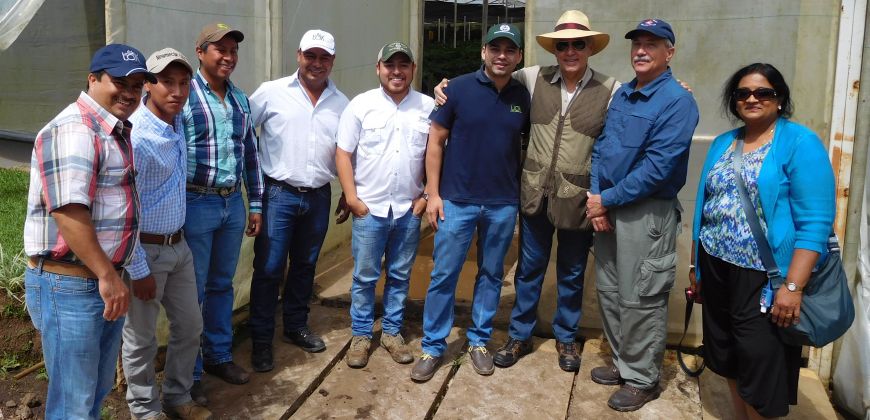When Steve Newman is on campus at Colorado State University, he is in charge of operations at the new Horticulture Center and collaborates with county Extension faculty as well as the state’s greenhouse industry to develop best practices for commercial crop production.

Newman, a professor of Horticulture and Landscape Architecture[1], also spends time traveling to other countries to share those best practices and learn from producers in other parts of the world. For example, in September, he went to Guatemala as part of the Partners of the Americas[2] USAID Farmer-to-Farmer program, which provides technical assistance to agricultural producers, organizations, agribusinesses and universities in Latin America and the Caribbean.
A leader in non-traditional agricultural exports
Guatemala is recognized as a leader in non-traditional agricultural exports such as snow peas, green beans, mini-vegetables and fruits. Other commodities such as sugar cane, bananas, maize, coffee and cacao also help drive Guatemala’s agricultural sector, which makes up 23 percent of that country’s gross domestic product. The country also has a vibrant and growing ornamental plant and flower industry in which more than 150 producers and exporters grow more than 80 species and 200 varieties of plants.
“Domestic consumption is not what drives the ornamental industry in Guatemala,” said Newman. “It is the exports of these plants to other Central American countries, Europe and to a certain degree, the United States that keep people employed, helping them to earn a modest living and ultimately climb out of poverty.” An estimated 54 percent of Guatemalans live in poverty.
Addressing local needs
Specialists like Newman spend two to three weeks a year in a country working on specific technical assignments while working directly with their counterparts in the region to address local needs.
Newman’s trip was designed to help Guatemalan producers learn best practices for greenhouse management and for sustained plant growth. Pest management is also a pressing issue for growers, as it is in Colorado, although the pests are different in Guatemala.
Global impact
“There is no question that our department and college have a global impact,” said Jessica Davis, head of the Department of Horticulture and Landscape Architecture in CSU’s College of Agricultural Sciences. “We have expertise that can change lives around the world, and it is our obligation and privilege as a land-grant university to address challenges in the United States and abroad.”
For more information about the Partners of the Americas USAID Farmer-to-Farmer program, visit the website[3].

